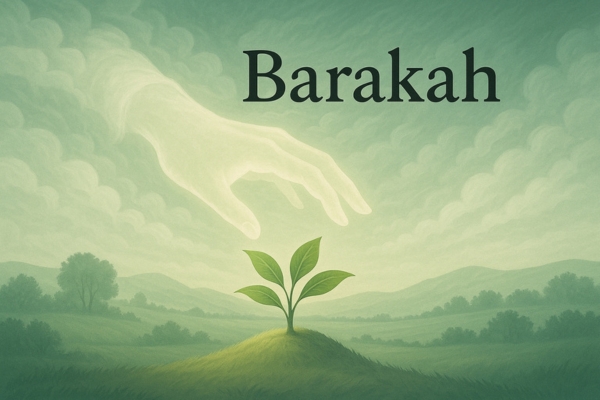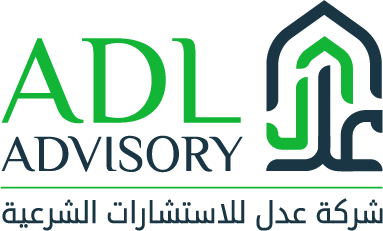
The Invisible Hand of Barakah
There is a saying that goes, “Barakah is not having more, it is doing more with less.”
When we think of wealth, most people focus on quantity like how much they earn, how much they save, how much they can invest. But in Islam, we’re taught to look beyond numbers. It teaches us that real success isn’t always in the numbers. Rather, it is in the unseen force that brings about goodness and lasting benefit beyond what is apparent, this force is known as Barakah.
But what exactly is barakah? And how can market players, particularly in the Islamic finance industry, seek to instill it into their work and wealth?
UNDERSTANDING BARAKAH: The Divine Multiplier
Barakah refers to divine blessings that result in increase, continuity, and benefit in one’s wealth, time, health, and efforts. It is not confined to tangible abundance but manifests in the quality and impact of what we possess or do.
Take for example the life of the Prophet Muhammad (S.A.W) and his noble companions. Their material means were often limited, yet their legacies are unmatched in scale and permanence. That’s barakah!
In a financial context, barakah can mean profits that are clean, growth that is steady and sustainable, and portfolios that bring both returns and peace of mind. It’s the reassurance that what you earn will serve you, your family, and your community, not just in this world, but in the next.
So, what brings about barakah, and how can market players be more intentional about seeking it?
CULTIVATING BARAKAH: The Framework of Ethical Abundance
Let’s now explore some the principles and actions that open the doors to barakah, actions that are just as strategic as they are spiritual.
-
Earning Through Halal Means
This is the most fundamental principle. Barakah cannot reside in wealth earned through impermissible means, be it interest (riba), deceit, fraud, or harm to others. Market players must ensure that their transactions, contracts, and investments are aligned with Shariah principles.
This means scrutinizing revenue models, purifying questionable income (through charitable giving), and consulting credible Shariah advisors. Remember, it is better to have a little that is pure than a lot that is unclean.
“O you who have believed, eat from the good things which We have provided for you and be grateful to Allah.” (Surah Al-Baqarah, 2:172)
-
Transparent Dealings and Sincere Intentions
The Prophet (S.A.W) said, “The two parties to a transaction have the option (to cancel it) as long as they have not separated; and if they spoke the truth and made everything clear, they would be blessed in their transaction…” (Bukhari & Muslim)
This hadith makes a direct link between truthfulness in business and barakah in trade. Transparency, fair pricing, honest disclosure, and mutual consent are not just ethical guidelines, they are barakah multipliers.
Business isn’t just about moving capital, it’s about building trust.
-
Being of Benefit to Others
The Prophet Muhammad ﷺ said:
“The best of people are those who are most beneficial to others.” (Narrated by al-Ṭabarāni in al-Muʿjam al-Awsaṭ, authenticated by al-Albani)
Wealth that benefits others attracts barakah. In fact, one of the greatest ways to increase barakah is to create value, value for your clients, for society, and for the underserved. Whether it’s through offering interest-free microfinance, inclusive products for Muslim communities, or financial education programs, Islamic finance has the potential to be a means of upliftment.
Every transaction that aligns with justice, compassion, and service to creation is an invitation for divine blessing.
-
Paying Zakat and Giving in Charity
Zakat is a purifier of wealth and a gate to barakah. Charity in general, whether required or voluntary, is an investment in one’s akhirah (Hereafter), but also a way to increase one’s dunya (worldly) blessings.
“Who is it that would loan Allah a goodly loan so He may multiply it for him many times over?” (Surah Al-Baqarah, 2:245)
So, for financial institutions and individuals alike, integrating charitable giving into business practice isn’t just noble, it’s strategic, in both worlds.
Conclusion
Barakah doesn’t come from shortcuts or clever tricks. It comes from values, such as how we think, act, and treat others. For instance, when we build a work environment that is honest, fair, and focused on serving people, barakah naturally follows.
Simple things make a difference: paying fair wages, keeping promises, treating staff with kindness, and staying honest in contracts. A company that lives by these values creates a space where barakah can grow.
Let me end with this: while the financial industry mostly revolves around ROI (Return on Investment), as Muslims, let’s not forget the ROB (Return on Barakah).
May our businesses be not only successful on spreadsheets, but also weighty on our scales on the Day of Judgment.
Ameen.
